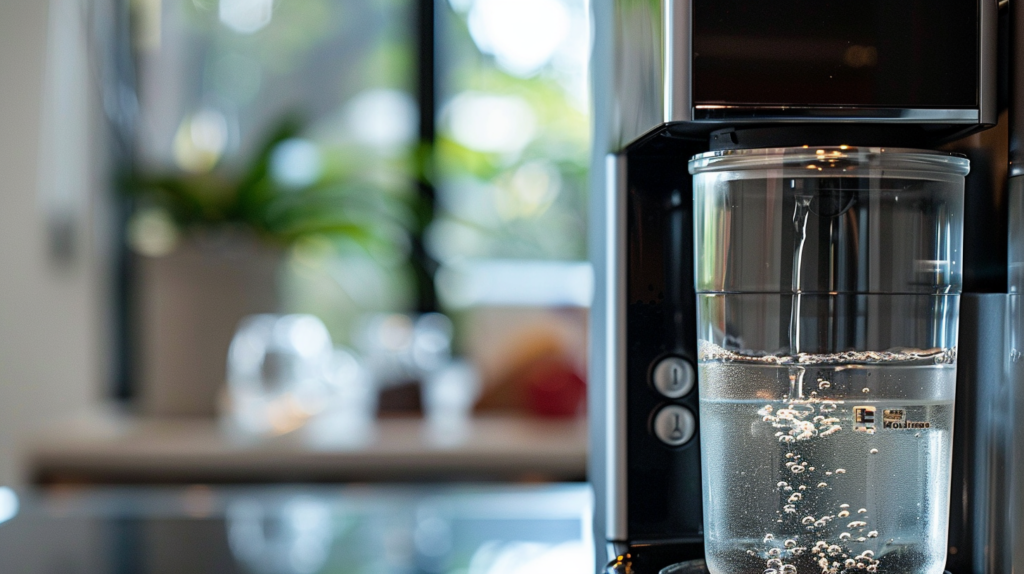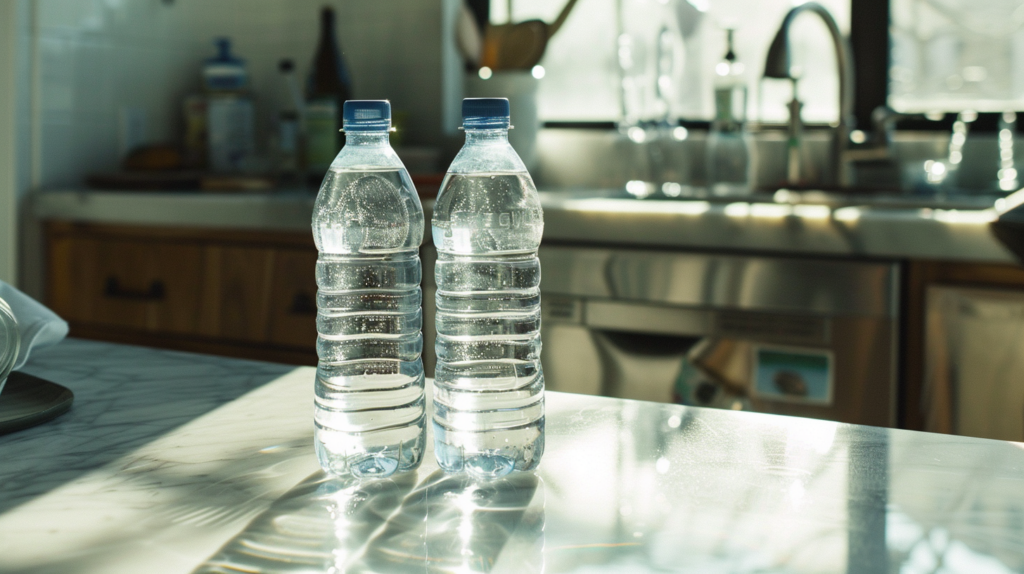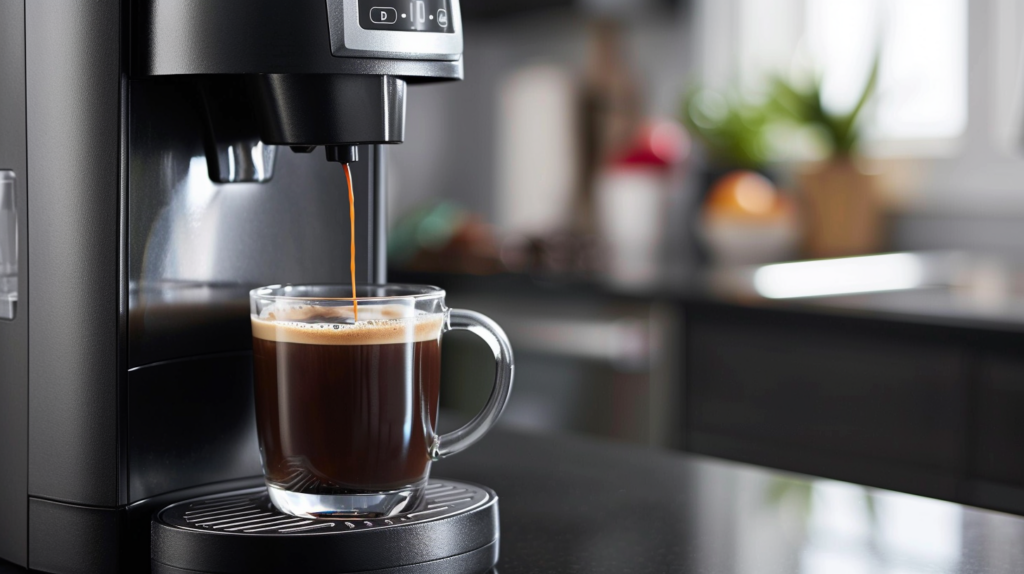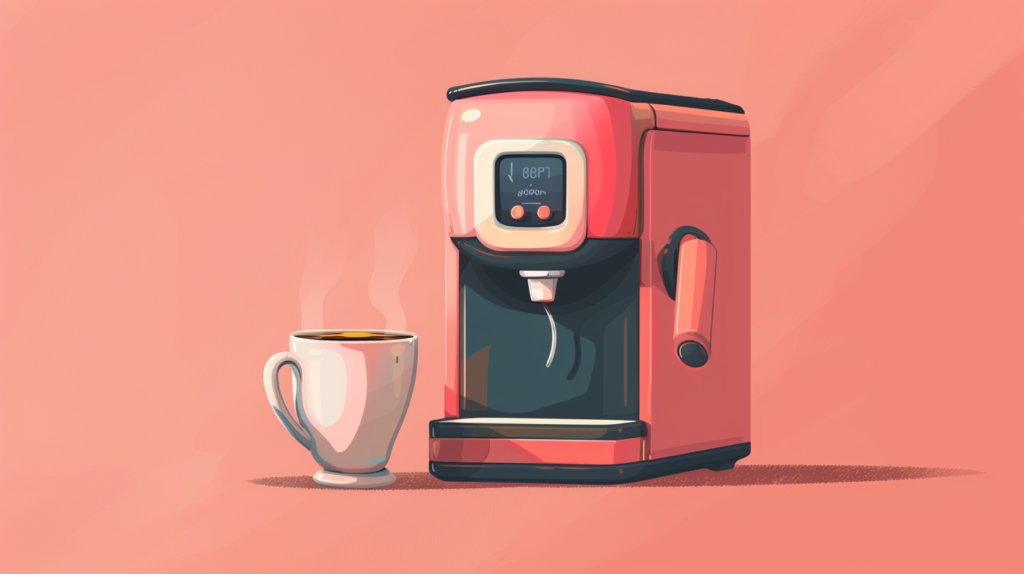While choosing the right grind, roast, and properly storing coffee is imperative to make a good cup of joe, there's another part of the equation that people don't talk about much to make a delicious brew – it's water.
Some might say, “just put in any drinking water and it'll be fine.” Water makes 98% of your coffee, so choosing the best kind of water is essential for a good brew.
Also, the water you use can contain naturally occurring minerals like magnesium, calcium, and chloride that not only affect the taste of your coffee but can cause buildup in your machine that might damage it.
So, if you're wondering what water is best for Keurig, keep scrolling.
Why Is It Essential To Consider The Type of Water?

It's essential to consider the type of water to maintain the coffee machine's efficiency and extend its life span. The most common concern when using water from the tap is hardness.
Water contains naturally occurring minerals like magnesium, calcium, potassium, sodium, sulfate, chloride, and bicarbonate that can damage your coffee machine by depositing limescale.
Use a commercial descaling solution or white distilled vinegar to remove limescale buildup in your Keurig machine.
Moreover, it's vital to use high-quality water to make your brew as fresh and as tasty as possible. If you use bad-tasting water, you'll also make bad-tasting coffee. It's the same when making ice cubes.
Most people use water softeners to remove minerals that create water hardness.
However, water softener won't solve your problems when it comes to your Keurig machine.
Water softener contains sodium ions that form around coffee grounds and tea leaves.
Sodium ions make the water less penetrable, resulting in slowing down the extraction process that can eventually lead to over-extraction of the coffee grounds.
What Water is Best For Keurig?

Bottled filtered water is best for Keurig. It contains the proper amount of minerals.
The Keurig machine needs the right amount of minerals to function. Also, the right amount of mineral content in the water can enhance the coffee's flavor because the minerals pull the flavors of the coffee into the water.
Too much mineral content can be harmful to your Keurig machine. That is why choosing the water you use for brewing your coffee is crucial.
However, bottled, filtered water can be expensive. Another downside of bottled, filtered water is the amount of plastic it uses.
Plastic water bottles are harmful to the environment. They don't decompose easily and have the potential to leak harmful chemicals into the environment.
To save costs and the environment, you can buy water filters to remove impurities from tap water.
Keurig sells water filters that are compatible with your Keurig coffee machines. Using water filters can help you make a better-tasting coffee.
To Use Distilled Water in Keurig or Not to Use?
While some argue that distilled water is the best choice of water for the Keurig machine, it contains less than 1 PPM of minerals, which may be the reason why distilled machines won't work with some Keurig machines.
For example, the Keurig 2.0 models and newer ones do not tolerate distilled water because they're too pure for their sensors to operate properly.
Most Keurig machines have built-in sensors meant to detect mineral content in water. When no mineral is detected, an error message will display.
When you use distilled water in your Keurig 2.0, the sensor will continuously alert you to add water because it might think there's no water in the tank and no mineral content can be detected.
Keurig also recommends not using distilled water with the K-Supreme Plus because the machine doesn't perform at its best when using distilled or high-alkalinity water.
FAQs
Why does Keurig say not to use distilled water?
Keurig says not to use distilled water because the Keurig 2.0 models and newer ones do not perform at their best when using distilled water.
This is because distilled water might be too pure for the Keurig 2.0 models' sensors to operate properly.
Do you need a water filter for a Keurig?
It depends on the condition of the water in your area. You don't need to use a water filter if you live in an area with excellent water quality.
However, a water filter will be beneficial if you live in areas with hard water and high amounts of chlorine and sulfur.
Water filters remove minerals and other impurities to improve the water's smell and taste.
Why won't tap water work for your Keurig coffee?
Tap water might contain impurities and chemicals, depending on where you live. There are areas where there are high amounts of sulfur, chlorine, fluorine, salts, and even pesticides in the water.
These chemicals can be harmful to your health. Not to mention, they can alter the coffee's taste and give it an unpleasant odor.

The Takeaway
Whether the water you use when brewing your coffee can or can't affect the taste of your final cup of brew has been a topic for debate.
However, the answer is obvious. Of course, the water will affect the taste of your coffee because it makes up 98% of your brew. It's like using bad-quality water when making ice cubes. The result is bad-tasting ice cubes.
Using high-quality water not only improves the taste of your coffee but your coffee experience as well. After all, who wants a bad-tasting coffee?
High-quality water also ensures the longevity of your coffee machine.
When you use hard water, the naturally-occurring chemicals present, like magnesium, calcium, potassium, sodium, sulfate, and chloride, can cause limescale buildup in your machine over time.
This limescale buildup can damage your machine, block water channels, and cause problems in water heating.
To ensure that your machine is working in optimal condition and extend the lifespan of your reliable coffee machine, it's imperative to maintain your Keurig machine by descaling it every three months.
Also, using the right kind of water for your Keurig machine is crucial.
